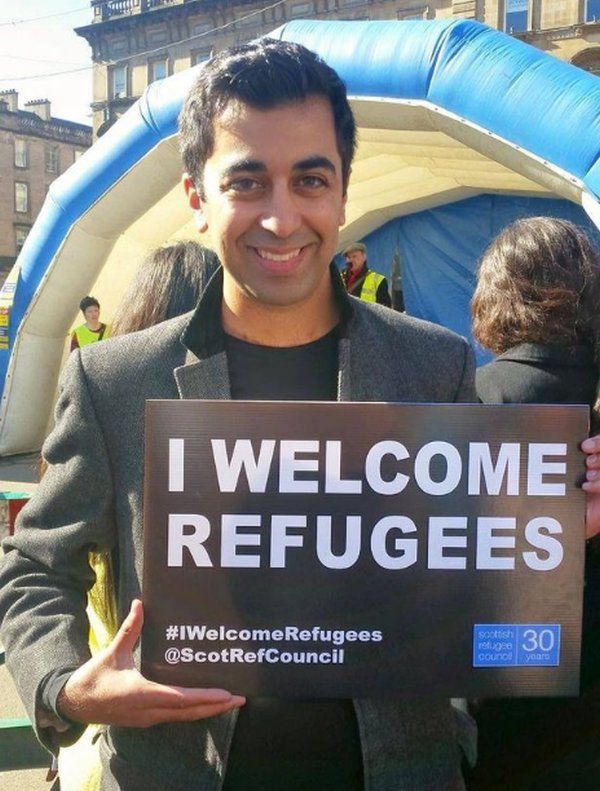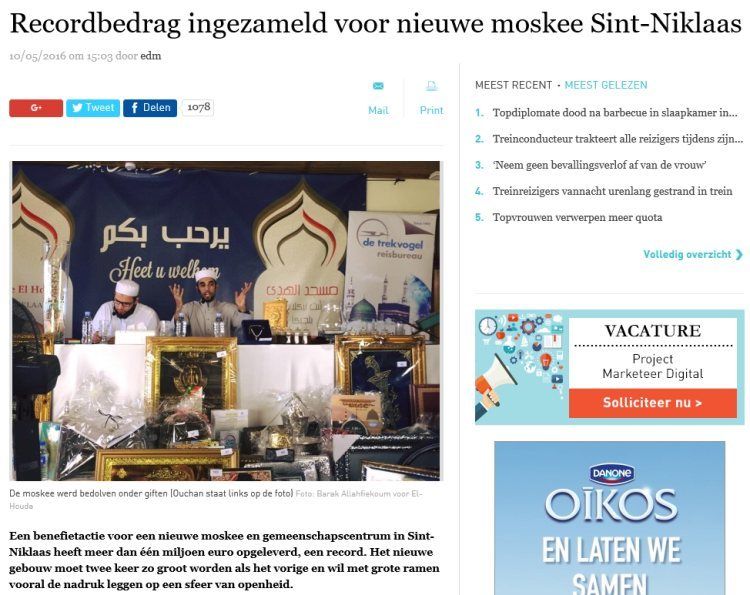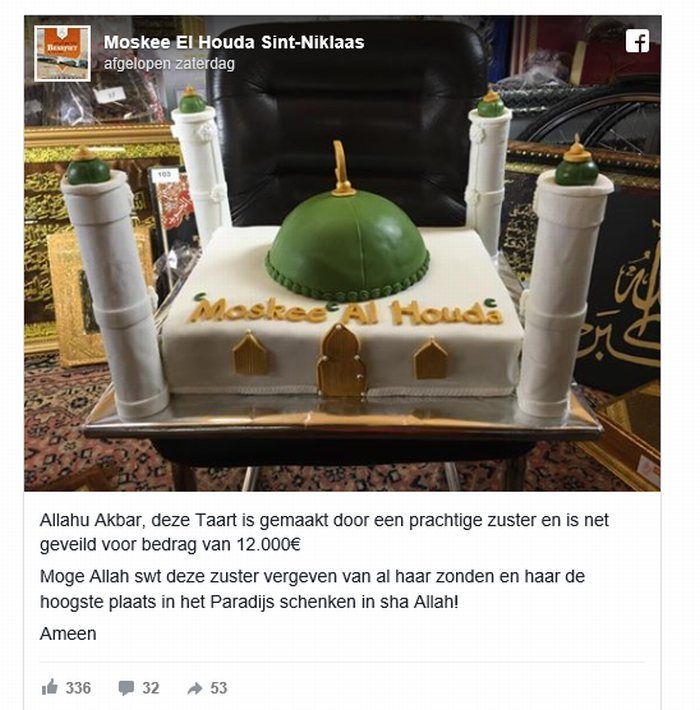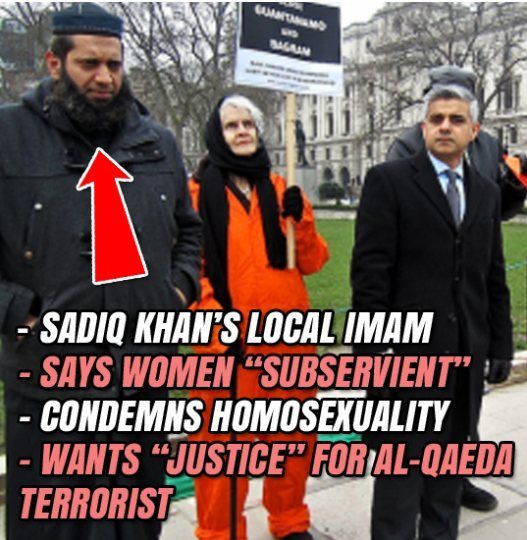Some crucial insight on Erdogan's neo-Ottoman ambitions from an insider,
Uzay Bulut, writing for
The Gatestone Institute:
"TURKEY? IN THE EU?
On April 25, Deputy Prime Minister Mehmet Simsek, while speaking at the High-Level EU-Turkey Economic Dialogue meeting in Istanbul, said that the full membership process to the European Union was Turkey's most crucial strategic target.
Simsek noted that Turkey will increase the quality of its institutions, strengthen the rule of law and complete the approximation process with Europe by running a reform process.
Turkey's President Recep Tayyip Erdogan, however, has made affectionate statements expressing his admiration not for the European Union, but for the last Islamic caliphate -- the Ottoman Empire, an expansionist Islamic realm that committed massacres, rapes, and sexual slavery of people in the lands it invaded.
In Istanbul on May 30, 2015, in a public meeting celebrating the 562nd anniversary of the fall of Constantinople, Erdogan, sounded more like an Ottoman sultan than the leader of a NATO member nation.
He praised "hoisting the flag of Islam in Jerusalem again" and "stamping the seal of Islam on Al-Aqsa Mosque." According to some media outlets, two million people attended the event and cheered him.
"What is the conquest?" Erdogan asked his audience.
"The conquest is Hijrah [expansion of Islam through emigration, following the example of Muhammad, the founder of Islam, and his followers from Mecca to Medina]. The conquest is Mecca. It is to cleanse the Kaaba, the house of Allah on earth, of all the icons. The conquest is Jerusalem. It is when the prophet Omar stamped the seal of Islam on Al-Aqsa Mosque, our first Qibla [the direction to face when a Muslim prays during the five times daily prayers] while respecting all faiths including [those of] Christians and Jews.
"The conquest is Al-Andalus [Muslim Spain]. It is to build the most beautiful architecture, literature and culture of the world such as in Córdoba and Granada.
"The conquest is Samarkand [a city in present-day Uzbekistan and once a capital of the ancient Sogdian civilization whose main religion was Zoroastrianism.]
"The conquest is Bukhara [also in present-day Uzbekistan. It was a diverse city with Zoroastrian, Buddhist, Jewish and Nestorian Christian communities]. It is to establish one of the greatest civilizations of history in the steppes of Central Asia.
"The conquest is Salah al-Din al-Ayubbi [Saladin, who in 1187 invaded Jerusalem]. It is to hoist the flag of Islam in Jerusalem again.
"The conquest is Alp Arslan [the second Sultan of the medieval Muslim Seljuk Empire, who conquered Anatolia]."
"The conquest is to open the doors of Anatolia up to Vienna for this blessed nation. The conquest is Osman Ghazi [the first Ottoman Sultan]. It is to make the sycamore [the Ottoman Empire] meet with the ground that would cover three continents and seven climates through the enlightenment inspired by Sheikh Edebali who said, 'Make the human live so that the state can live'.
"The conquest is preparation. The conquest is when the Sultan Murad II abdicated the throne to his 12-year-old son, Mehmed II. And of course, the conquest is the Sultan Mehmed the Conqueror. It is, at age 21, to embrace Istanbul, the most favorite city of the world, after destroying the millennial Byzantium.
"Mehmed the Conqueror conquered Istanbul in 1453. But the conquests always continued before and after that. They continued with Sultan Selim I the Grim, Sultan Suleiman the Lawgiver, Sultan Murad IV, and Sultan Abdul Hamid II.
"The conquest is to have the courage, tenacity and sagacity to defy the entire world even at the hardest times.
"The conquest is 1994 [when Erdogan was elected mayor of Istanbul]. It is to serve Istanbul and the legacy of the Sultan Mehmed the Conqueror. The conquest is to make Turkey stand up on its feet again."
The crowd shouted, "Here is the army, here is the commander."
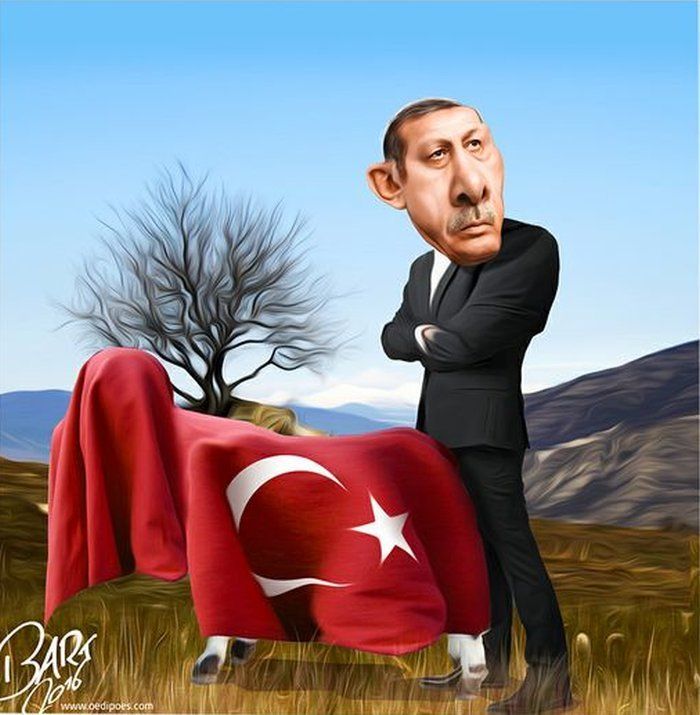
On April 14, the European Parliament sent a stern warning to Turkey, accusing the ruling Justice and Development Party (AKP) government of "backsliding" on democracy and the rule of law.
Kati Piri, rapporteur for Turkey at the European Parliament, said the regression in areas such as freedom of expression and the independence of the judiciary was "particularly worrying."
Ankara rejected the report, which cited references that the mass killings of Armenians under the Ottoman Empire constituted genocide, Turkish EU Affairs Minister Volkan Bozkir said.
"We will consider this report as null and void," Bozkir was quoted as saying by the state-run Anadolu Agency. "There is no moment in our history that we feel ashamed of. All of our archives are open. We believe this is an issue that should be decided by historians. Politicians should not write history."
On April 19, 2016 Erdogan's response to the EU report, according to the pro-government newspaper Yeni Akit, was loud and clear:
"The EU needs Turkey.
"That they presented such a report to us at a time when our relations with the European Union are going positively in many fields, such as immigrants, opening some chapters and visa liberalization, is simply a provocative approach, a provocative act. I guess Europeans will see that.
"They have not been able to see that since 1963. But I do not know what will happen from now on. The EU needs Turkey more than Turkey needs the EU. Let everyone know it like that. There is no need to go to further places to understand that. It is enough to look at the latest developments.
"The report has a crippled perspective on the issues of Cyprus and the Aegean Sea, the independence of judiciary, and the freedom of expression, press and assembly. These people [EU officials] do what their nature (disposition) requires them to. [In the report], there is also the part about the 1915 events which is utterly farcical."
Erdogan glorifies the Ottoman armies that reached the gates of Vienna, talks about the "good old times" when the Islamic flag was hoisted in Jerusalem, and aggrandizes Ottoman Sultans who were also caliphs.
Turkey's President Recep Tayyip Erdogan recently made affectionate statements expressing admiration not for the European Union, but for the last Islamic caliphate -- the Ottoman Empire, an expansionist Islamic realm that committed massacres, rapes, and sexual slavery of people in the lands it invaded. The question is when the EU will start acting like a self-respecting institution, and consider Turkey according to what it actually says and does?
Unfortunately the Turkish public's opinion of the EU is not that different from the Turkish government's. According to a 2014 PEW poll, around two-thirds of the Turks (66 %) expressed unfavorable views of the European Union. Turkish distaste for the West was not only about the EU. Nearly three-quarters (73%) also shared a dislike of their NATO ally, the U.S. In addition, 70% of the people of Turkey dislike NATO.
The question is when the EU will stop playing ostrich and start acting like a self-respecting institution. And when will the EU authorities take Turkey not according to their own wishful thinking, but according to what Turkey actually says and does?"
Uzay Bulut, a journalist born and raised a Muslim in Turkey, is currently based in Washington D.C.
MFBB.


